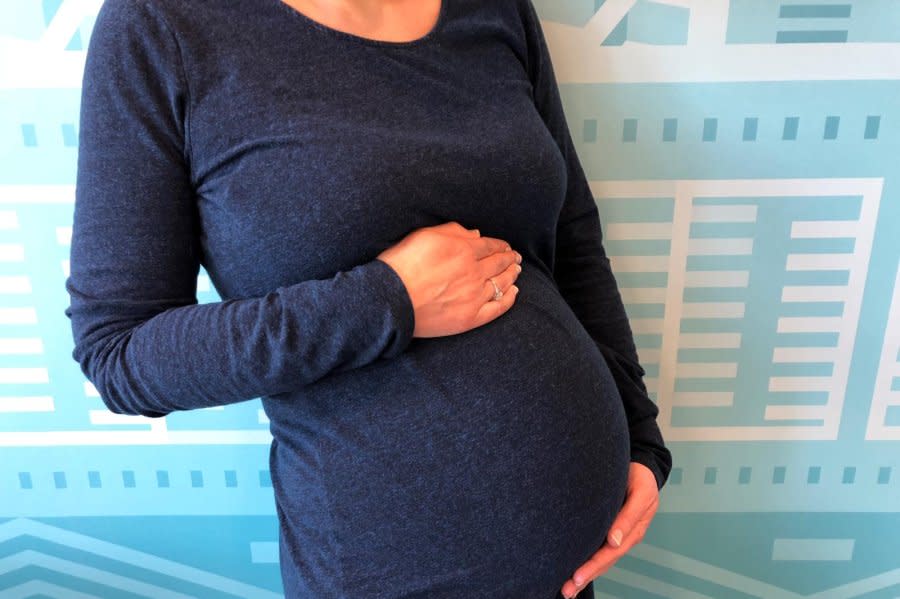CDC sounds alarm on newborn syphilis 'epidemic'

Nov. 7 (UPI) -- Calling it a tipping point in the explosion of the number of babies born with syphilis in the United States, Centers for Disease Control and Prevention officials said Tuesday that medical professionals and communities need to more aggressive in identifying the infections and treating them at their earliest stages.
The CDC said more than 3,700 babies were born with syphilis in 2022, more than 10 times the number in 2012. The data of newborn syphilis cases have gone hand-in-hand with the epidemic of syphilis cases among child-bearing women.
"The congenital syphilis crisis in the United States has skyrocketed at a heartbreaking rate," CDC Chief Medical Officer Dr. Deborah Houry said in a news release.
"New actions are needed to prevent more family tragedies. We're calling on healthcare providers, public health systems, and communities to take additional steps to connect mothers and babies with the care they need."
Houry said at a midday news conference that many cases are newborn syphilis are "extremely preventable," but far too many times patients often are poor and without access to routine care.
"Syphilis is increasing in all age groups in the U.S.," Houry said. "The STI rate in this country is continuing to escalate. As an emergency physician, I saw patients who didn't have access to regular care.
"As a result I would diagnose infections when I was seeing them for abdominal pain or another complication."
Houry said the medical community should be more aggressive in testing and treating cases early, making sure probing for syphilis is part of their routine when pregnancies are concerned.
"These efforts must reach people where they are so that every mother and baby get the support, they need to stay healthy," she said.
Dr. Laura Bachmann, chief medical officer for the CDC's Division of STD Prevention, said testing should be the start of care for these patients, not the end. She said initial testing is where too many patients are falling through the cracks and not receiving proper care.
"By treating patients quickly rather than waiting for the results of a follow-up test requiring another visit, we can reduce some of the greatest hurdles of the care some mothers need," she said.
Officials said the women being affected by this sharp rise face combined social and economic factors that prevent them from seeking quality prenatal care along with barriers to prevention and resources.
The CDC said that syphilis during pregnancy can cause miscarriage, stillbirth, infant death and lifelong medical issues.
According to the agency's latest research, 9 in 10 newborn syphilis cases last year could have been prevented with timely testing and treatment during pregnancy.
CDC officials said that more than half of the women who tested positive for syphilis during pregnancy did not receive adequate or timely treatment, and that nearly 40% were among mothers who were not in prenatal care.
"The congenital syphilis epidemic is an unacceptable American crisis," said Dr. Jonathan Mermin, director of CDC's National Center for HIV, Viral Hepatitis, STD and TB Prevention.
"All pregnant mothers -- regardless of who they are or where they live -- deserve access to care that protects them and their babies from preventable disease," Mermin said.
"Our nation should be proactive and think beyond the OB/GYN's office and bridge prevention gaps. Every encounter a healthcare provider has with a patient during pregnancy is an opportunity to prevent congenital syphilis."
The CDC said barriers women face in getting syphilis treated include ack of insurance, substance use disorder, systemic racism and limited healthcare access.
The CDC said while newborn syphilis cases are increasing overall, babies born to Black, Hispanic, or American Indian/Alaska Native mothers were up to eight times more likely to have newborn syphilis in 2021 than babies born to White mothers.
The agency said such racial and ethnic disparities stem from decades of the deeply entrenched social determination of health that create greater obstacles to quality healthcare services and result in health inequalities such as higher rates of syphilis in some communities.
The CDC made several recommendations Tuesday, including starting syphilis treatment right away following a positive rapid syphilis test during pregnancy and use of rapid syphilis testing and treatment during pregnancy.
The agency also recommended addressing syphilis before pregnancy in counties with high syphilis rate and working with local community health workers who can help to overcome additional barriers to syphilis testing and treatment during pregnancy.

